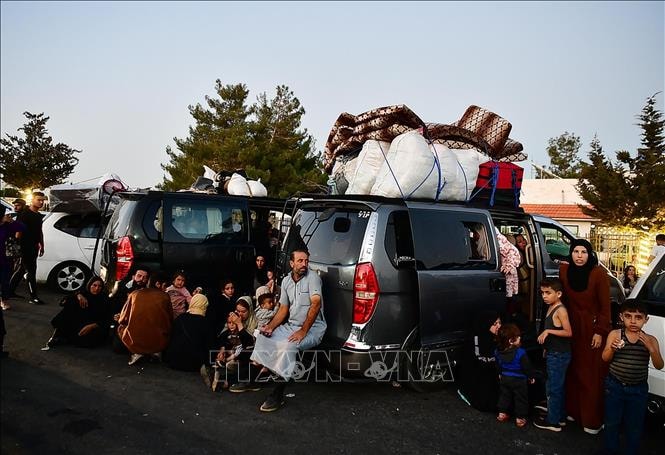The United Nations High Commissioner for Refugees (UNHCR) said on October 4 that most of Lebanon's nearly 900 shelters were full and that more and more people evacuated from southern Lebanon were spending the night outdoors.

Speaking at a press conference in Geneva, Rula Amin, senior communications adviser and spokesperson for the UNHCR Middle East and North Africa regional office, expressed concern about the living conditions of those affected by the conflict between Israel and Hezbollah in Lebanon, especially as winter has set in. Meanwhile, most of the nearly 900 shelters set up by the Lebanese government are full. She said UNHCR is working with local authorities to find more places for the evacuees.
Mr. Mathieu Luciano - head of the International Organization for Migration (IOM) office of the United Nations in Lebanon also confirmed the lack of temporary shelters, forcing many people to sleep overnight in parks, on the streets or on beaches.
The UN Office for the Coordination of Humanitarian Affairs (OCHA) warned that the number of displaced people will increase as the Israeli army continued to issue evacuation orders in many areas of southern Lebanon on October 3. On October 4, Israeli airstrikes cut off the road leading to the main humanitarian crossing for thousands of Lebanese people into Syria.
According to Lebanese officials, more than 1.2 million people have been forced to flee their homes and nearly 2,000 have been killed since fighting between Hezbollah and Israel began last year.
Regarding tensions in the Middle East, Iran's Supreme Leader Ali Khamenei said on October 4 that the country and armed groups in the region will not back down, and defended the military action when launching a series of missiles towards Israeli territory on the evening of October 1, saying that this was an "entirely legal and legitimate" action. Mr. Khamenei delivered such a message when appearing at a prayer ceremony in Tehran.
Regarding the situation in the Gaza Strip, on October 4, the World Health Organization (WHO) said that it had sent a request to Israel to start the second phase of the polio vaccination campaign in this Mediterranean coastal strip starting on October 14. The head of the WHO health emergencies team in Gaza and the West Bank, Ayadil Saparbekov, said that negotiations were ongoing and a meeting with the Israeli authorities on the next phase of the vaccination campaign was scheduled for October 6. According to Saparbekov, one of the proposals was for the Israeli army to consider a pause in fighting to facilitate the implementation of the second phase of the vaccination campaign.